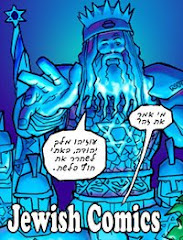One complaint from the this-is-history viewpoint regards Moloch as the deity worshiped at Mount Moriah’s altar. Moloch isn’t specifically mentioned until much later in the Bible, so Rushkoff placing him as the altar’s god seems very odd, if not totally inaccurate. Criticisms like that often stem from a belief that the Bible sprang from the ethers completely formed as we see it today. The truth is that myths and stories from the Mesopotamian areas all fed off one another, and the Hebrew myths changed as the people’s environments and experiences changed. If that is Rushkoff’s view, then it would make sense that the Moloch he uses in the story is really an amalgam of various versions of Moloch’s archetype. Moloch could just as easily be called Ba’al, while Astarte go by Inanna, Ishtar, or Aphrodite. It makes more sense to view Moloch as Inanna as continual forces of violence and sexuality despite any name changes.
Review: People Who Eat Darkness, by Richard Lloyd Parry
-
*People Who Eat Darkness: The True Story of a Young Woman Who Vanished from
the Streets of Tokyo- and the Evil that Swallowed Her Up*, by Richard Lloyd
...
3 years ago







No comments:
Post a Comment